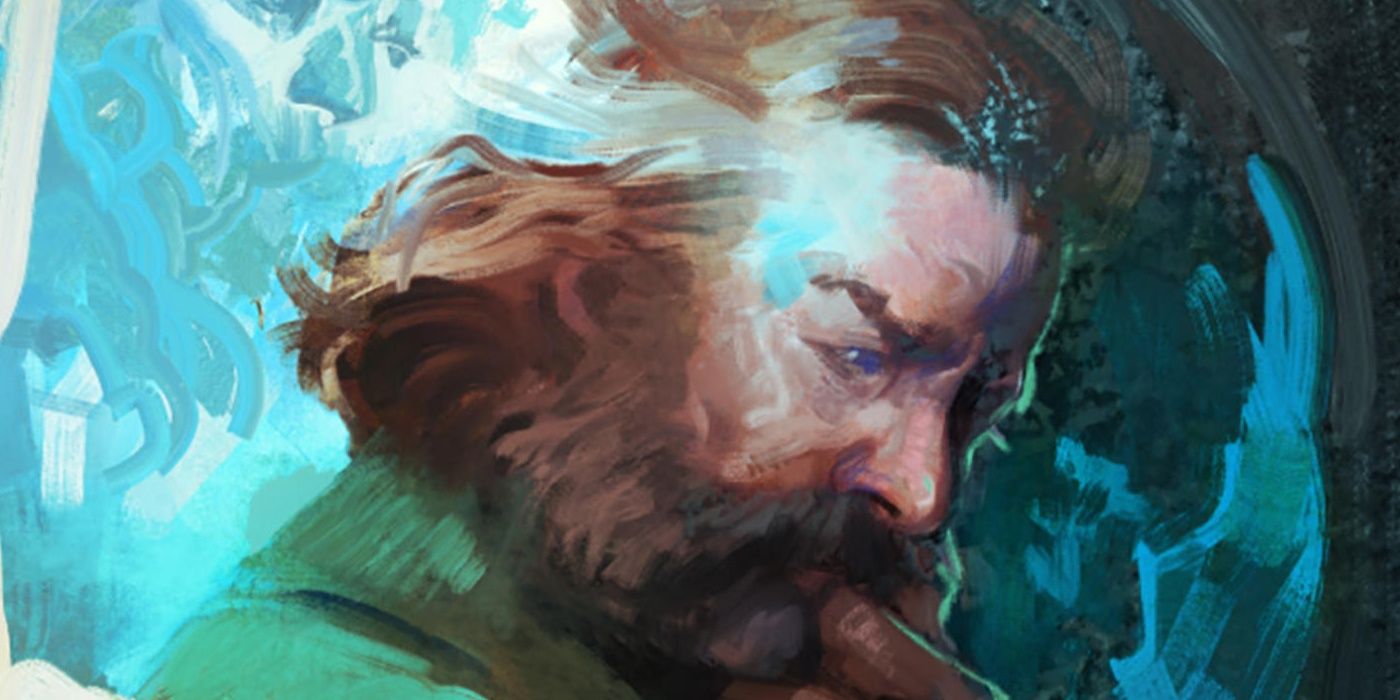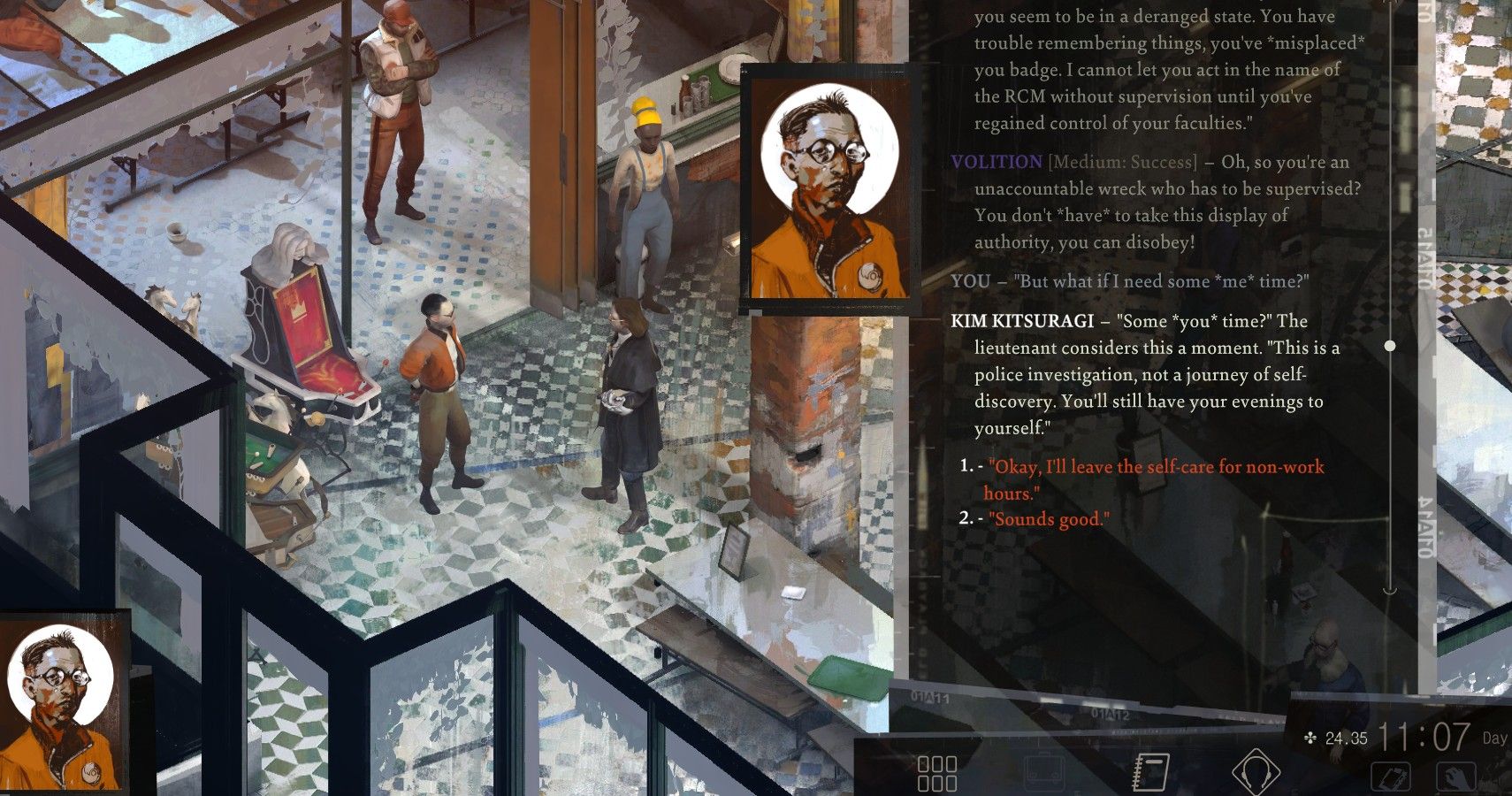In one Disco Elysium scene, Harry can invite Kim to an impromptu dance-off at the Dolorian church-turned-nightclub. Fuelled by the thumping beats of the anodic music blasting at full, ear-piercing volume around him, he can holler at Kim to dance alongside him, citing an “emergency on the dance floor”, but doing so successfully means having to pass an Authority skill check. Conversely, his failure to do so has a grave price; he’ll end up yelling a particularly searing racial slur that would leave Kim reeling with anger, and the player possibly feeling like the biggest sack of shit in the world. Afterwards, Harry can apologise to Kim, but the damage has already been done; there’s really no way to walk back from a mistake this monumental.This moment, however, feels like an odd inclusion in Disco Elysium; it reminds me of the so-called “heated gaming moments” that white YouTubers and streamers are sometimes wont to do when they get so consumed by emotions that they resort to using slurs to express their exuberance, indignation or rage. Similarly, Harry seemed so buoyed by the hypnotic pulse of the music that he can’t help but blurt that offending phrase in a moment of desperation. In a game that is usually deliberate about its use of language, and its discussion of politics and heavier themes, this scene felt almost out of place—even unfair, since most players probably would not anticipate these words being uttered in the first place. But perhaps it’s one evidence of Harry’s personality as a shitty, drunk, and definitely very white cop—that such racist epithets linger so dangerously at the tip of his tongue, that they can spill out of his mouth at times when his self-control is waning.
For the most part, discussions of racism in Disco Elysium largely skew progressive. Racism in the game comes in two horrid flavours: the Racist Lorry Driver, who you’ll meet right outside the Whirling-in-Rags motel, and Measurehead, a hulking figure made of pure muscle who guards the entrance to the harbour office. Being a blatant racist usually takes premeditated, concerted effort; you’ll need to really double down on your convictions, particularly since Kim wouldn’t shy away from confronting you about your beliefs. In your conversation with Measurehead, who would try to convince Harry of Semenese supremacy through long, drawn-out dialogues revolving around the weakness and rightful subjugation of other cultures, attempts to agree with his brand of racism will only surface in very select options with him. Despite Measurehead’s seemingly eloquent rhetoric, it’s far easier to poke holes in his frankly gibberish philosophy on racism and eugenics and reject them altogether, unless you’re bent on role-playing as a fascist completely.
And then there’s the Racist Lorry Driver. When seeing Kim for the first time, he will greet him specifically by saying “Welcome to Revachol!”, a microaggression that implies that Kim is less of a Revacholian due to the colour of his skin. You can subsequently engage with Racist Lorry Driver in an in-depth discussion about the nuances of scientific racism, but the game gives you plenty of opportunities to disavow his brand of racism. Yet, a failure to outright reject his rhetoric, by preferring to remain infuriatingly centrist on this stance and saying that you’d “really rather talk about something else”, will cause your inner voice of Authority to chastise you for being weak. Thus a rejection of racism in Disco Elysium is less of a moral compulsion, and more about Harry’s capacity to exert dominance, establish control, and demand respect, such that instances of racist violence can be minimised.
Contrast this example to two thoughts that Harry can internalise: the ‘Inexplicable Feminist Agenda’, which lets Harry identify as a feminist, and the ‘Homo-Sexual Undeground’, which ostensibly offers no tangible benefits, but at least gives Harry space (to be exact, eight hours) to contemplate his sexuality. Of course, there’s also the ‘Advanced Race Theory’ thought, which can be invoked and internalised when speaking to Measurehead, but even the description of that thought is peppered with racial slurs and pejorative stereotypes (“desert pygmees playing with their own excrement, kojkos juggling potatoes, eczema ridden mauns grinning and dancing on wooden clogs”). It’s a dismal sign that suggests that Harry would rather run through the plausibility of scientific racism in his head, rather than its ill-effects on minority groups—one that his buddy cop, Kim, is actually part of.
Perhaps this is one demonstration of pervasive white privilege when it comes to issues on racism, given how little Harry thinks about its structural impact, or even his capacity to consume and enact it in circumstances that are seemingly outside his control. As pointed out by critic Zoyander Street, Harry can suffer from a literal heart attack from sitting on an uncomfortable chair (which, to be honest, is one of the most hilarious scenes in Disco Elysium), but is relatively unscathed by instances of racism in Revachol, or even when it’s happening to his close friend. Depending on your perspective, this is either a disheartening image of allyship, or simply the crude, unfiltered reality of it. Even for a game that’s as deeply cynical as Disco Elysium, its treatment and discussion of racism just feels a tad too bleak, detached, and hopeless.


